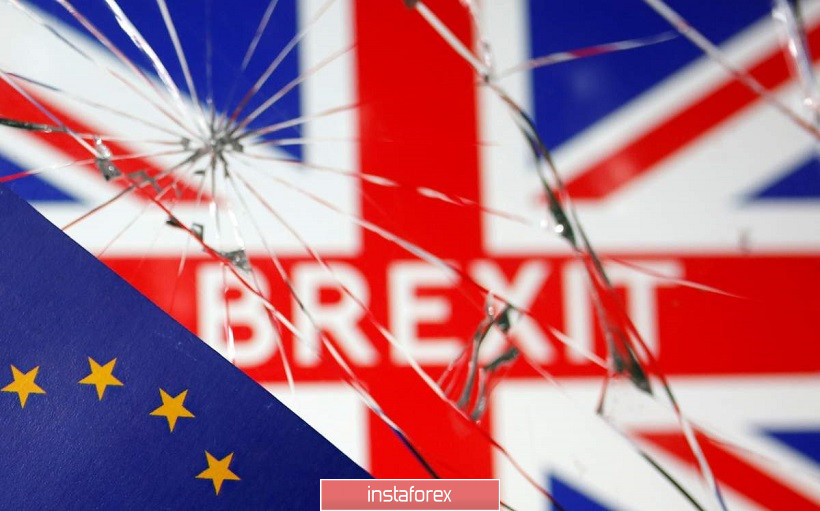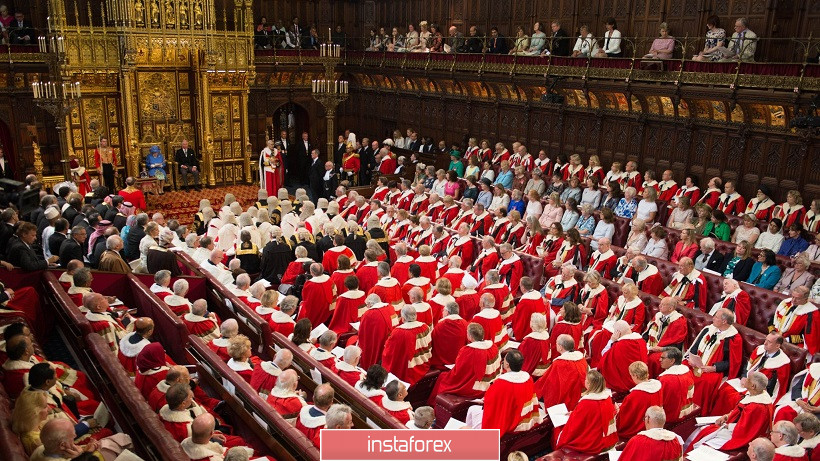This week, the British Parliament (its lower house) will issue a verdict on the resonant draft law "On the UK Internal Market", which essentially denies some of the provisions of the Brexit deal. Despite the controversial document and the extremely negative consequences of its adoption, the pound remains relatively calm, trading against the dollar within the 29th figure.
Why is the pound tolerating the stress well? After all, if the bill becomes law, Brussels will at least withdraw from negotiations on a trade deal – such threats were voiced at the European Commission leadership. In my opinion, the main reason for the pound's calmness is that the law will not be implemented one way or another and certainly not in the form in which it was presented by Boris Johnson.

This confidence is justified not only by the presence of internal opposition among Conservatives. It is known that the British Parliament consists of two chambers, but the Tories have a majority only in the Lower House — House of Commons. Meanwhile, in the House of Lords, the conservatives have only 250 supporters (this figure may vary depending on the situation) against more than 500 opposition supporters of Labour. Therefore, even if the bill is passed by the Lower House of Parliament, it will still have to overcome the process from the Upper House.
But it is worth noting here that the House of Lords is not an appeal court. Once they have passed their amendments, they send the bill back to the Lower House of Parliament, where MPs may or may not support them. It will then be returned to the Lords. In short, peers can make comments, forcing the House of Commons to return to the issue. And since there is no majority of conservatives among the Lords, the probability of such a scenario cannot be excluded. That is, the House of Lords can theoretically significantly delay this process if they repeatedly return this bill to the House of Commons (the law allows this to be done an unlimited number of times). A similar situation was with one of the options for a deal with Brussels (or rather, with the Northern Ireland bill, which would open the way to a deal).
This means that the members of the Upper House of Parliament act as a "reliable rear" for the pound. Majority do not support conservatives, so they should not miss the controversial bill, which (according to Europeans, some conservatives and many experts) violates the norms of international law.
However, there is another story. Anticipating the development of such a scenario, Johnson's government recalled that the Salisbury Convention of 1945 has not yet been canceled, and that this "should undoubtedly apply to the UK internal market bill as well". According to its provisions, members of the House of Lords undertake "to pass bills without delay aimed at implementing the election program of the winning party or coalition". At the same time, the conservatives point out that the main provisions of the controversial bill were written in the election Manifesto of the Conservative Party, so the Lords are obliged to support the bill.
Boris Johnson did go to the polls with the appropriate slogans. It guaranteed to maintain the maximum economic benefit in the implementation of Brexit, ensuring unhindered access for businesses and manufacturers in Northern Ireland to the rest of the UK. These are fully consistent with the main theses of the draft law "On the internal market".
Thus, on the one hand, the pound hopes for "protection" from the House of Lords, where the Conservatives do not have majority support. On the other hand, there are two factors to consider here. First, the Upper house is not an appellate body that can cancel or block certain bills. Peers can express their opinion in the form of amendments, which can later be rejected by members of the Lower House. Second, it is necessary to consider the specifics of national legislation, including in the context of the Salisbury Convention. The above factors suggest that the optimism of GBP/USD traders is early and unfounded.

Even if we ignore the situation with this bill, it can be concluded that the prospects for the pound still look unclear. So, if the controversial law is adopted, then Brussels is likely to withdraw from the negotiation process to discuss a trade deal. If the House of Commons rejects Johnson's initiative, he will refuse to submit a proposal for an extension of the transition period and will demand a trade agreement before New Year. It is evident that the parties will not be able to agree in such a short time, given the range of unresolved issues.
All this suggests that the pound in the medium term will be under significant pressure, which means that short positions will be a priority. The main target of the downward movement is 1.2720 (the lower border of the Kumo cloud, which coincides with the lower line of the Bollinger Bands indicator on the daily chart).





















